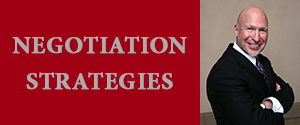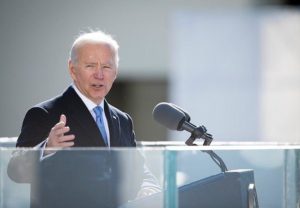In the aftermath of conflict in Gaza, when the dust will eventually settle and the world will turn its gaze to the region once again, the imperative for a lasting resolution will echo louder than ever: the call for a genuine, viable solution that charts a course towards lasting peace in the Middle East. A peace that will provide Israel with the security and safety it so desperately needs while providing the Palestinian people with a future pregnant with hope and optimism they so desperately deserve.
Blog
Redefining the UAW strike
In the heartland of America’s industrial might, a fierce battle unfolds at the forefront of labor relations, casting an imposing shadow across the nation’s economic landscape.
The United Auto Workers (UAW) union, an emblem of worker empowerment and a pillar of the American labor movement, currently stands at the epicenter of an unprecedented strike, demanding improved working conditions. Throughout this crisis, the rhetoric emanating from the UAW has been nothing short of potent. Phrases such as “unvalued, unacknowledged, and unappreciated” punctuate their discourse, alongside pointed critiques of a “billionaire class” and “corporate greed.” In an emailed statement, Shawn Fain said: “Every fiber of our union is being poured into fighting the billionaire class and an economy that enriches people like Donald Trump at the expense of workers”. These verbal salvos are of equal significance to the union’s demand for a 40 percent pay increase, if not more so, for they raise a crucial question: Is this strike a mere quest for improved compensation, or is it indeed a revolution geared towards reshaping the American labor landscape for generations to come?
The Russia Ukraine War: An Innovative Solution to an Insoluble Problem
The ongoing conflict between Russia and Ukraine has caused immense suffering and instability, with no clear end in sight. The prevailing Western narrative of Ukraine’s perceived advantage in the war is arguably a product of wishful thinking, driven by the need to justify hefty military investments. However, it is more realistic to acknowledge the likelihood of an eventual stalemate and a prolonged war of attrition.
History has shown that no war lasts forever. The conclusion of a war typically occurs either through unconditional surrender, an improbable outcome in the Russian Ukraine war, or via a negotiated agreement varying from an armistice to a peace settlement.
Who Should Pay for the Reconstruction of Ukraine After the War?

“Who should pay for the reconstruction of Ukraine after the war?”
This was a question that CNN’s Fareed Zakaria posed to Larry Summer, former US Secretary of the Treasury and President Emeritus of Harvard University, on his Sunday morning GPS show (February 26th 2023).
Secretary Summer’s response was that Russia, being the aggressor, should be responsible and its assets around the globe seized, to finance Ukrainian reconstruction. He supported his opinion with two antecedents.
The first was the Soviet Union seizing German assets after WWII to rebuild its own economy and infrastructure.
IMAGINING PEACE IN UKRAINE – A Roadmap for Negotiations

Dear Clients and Friends,
In our series of applying dispute resolution skills and techniques to international conflicts so as re-apply the lessons back to managing our own disputes and negotiations, please see my recent essay below published in The Diplomatist Magazine titled: “Imagining Peace in Ukraine – A Roadmap for Negotiations“.
Please visit our newly launched YouTube channel and subscribe. This channel provides exclusively informative and instructional content relating to negotiation, communication and dispute resolution.
Whether through the written word, audio podcasts or visual videos, I look most forward to further engagement with you!
With Best Wishes,
Raphael
Imagining Peace in Ukraine
A Roadmap for Negotiations
by Raphael Lapin
With all the rage about war and the humanitarian crises in Ukraine, I decided to mitigate my anxiety just a little by trying to imagine what a peace agreement might look like between Ukraine and Russia.
Although to date there have been several attempts at official talks on various levels, the outcomes have been little more than each side tossing declarations of demands at the other in the guise of “proposals”.
If there is to be any advance in peace negotiations, the parties will need to cease to confuse demands with proposals. They must begin to jointly seek creative and innovative options that could potentially meet both sides’ interests without either side appearing to be capitulating, and therein lies the challenge!
The Issues in Dispute, the Demands, and Possible Solutions
1. NATIONAL SECURITY AND NATO MEMBERSHIP
Dispute and Demands: With regard to national security and NATO membership, Russia sees Ukraine’s potential membership and NATO military materiel on her doorstep as a national security threat, and as such, demands that Ukraine maintains neutrality and never be admitted to NATO. Ukraine sees this demand as undermining its rights to self-determination as an independent sovereign state, and as such chooses to assert its rights to determine with whom it wishes to ally. NATO for its part also refuses to deny any qualifying state, alliance membership which it claims is contrary to its charter. To better visualize these conflicting interests see the chart below:
THE UKRAINE CRISIS – THE OTHER SIDE

Dear Clients and Friends,
In our series of applying dispute resolution skills and techniques to international conflicts so as re-apply the lessons back to managing our own disputes and negotiations, please see my recent essay below published in The Diplomatist Magazine titled: “The Ukraine Crisis – The Other Side”.
Please visit our newly launched YouTube channel and subscribe. This channel provides exclusively informative and instructional content relating to negotiation, communication and dispute resolution.
Whether through the written word, audio podcasts or visual videos, I look most forward to further engagement with you!
With Best Wishes,
Raphael
The Ukraine Crisis – The Other Side
“I cannot forecast to you the action of Russia. It is a riddle, wrapped in a mystery inside an enigma; but perhaps there is a key. The key is Russian national interest.” Although these words were uttered by Sir Winston Churchill in October 1939, they might as well have been voiced today.
The talks between Russia and the United States about the Ukraine crisis far has resulted in a stalemate. The good news is that both sides have agreed to continued dialogue. The final outcome can either be the catalyst for East-West relations to improve which will advance global security, or East-West relations to further deteriorate, which could potentially strengthen the entente between Russia and China. For President Biden, if managed with wisdom and skilled diplomacy, it is not too late for an opportunity to salvage his presidency from diminished ratings, and redeem him from what many believe to be the Afghanistan fiasco.
U.S. politicians, media, and news outlets are marching to a war cry. They are demanding that Russia unconditionally withdraws all troops from the Ukrainian border and are threatening an unmitigatedly tighter sanction regime should Russia choose not to comply. Again, U.S. hubris, media sensationalism, a collective national mindset still stuck in the Cold War, and an out-for-blood, sports-minded public hoping for a “team victory”, is driving US foreign policy, rather than skilled diplomacy, sound judgement and effective negotiation.
As long as we insist on seeing this crisis entirely and exclusively from a U.S. perspective, we don’t stand even a negligible chance of resolution. As Sir Winston Churchill said, the key to unlock this enigma are Russian national interests. To negotiate effectively, it is imperative that we make every effort to uncover, acknowledge and deeply understand those interests.
In this essay, I examine how Russia perceives Ukrainian tensions. This broader perspective will allow us to be better equipped and qualified to jointly design solutions that will meet their concerns while at the same time meeting U.S. interests. Read More —>
THE DIFFERENTIATION DILEMMA

Dear Clients and Friends,
Why should prospects hire you over your competitors?
Below is an article in which I apply sophisticated negotiation techniques to persuasion and influence in the sales context.
Should you have an interest in tools for resolving disputes, listen here to a podcast in which I am interviewed about my favorite dispute resolution tools.
If you prefer videos, please visit our newly launched YouTube channel and subscribe. This channel provides exclusively informative and instructional content relating to negotiation, communication and dispute resolution.
Whether through the written word, audio podcasts or visual videos, I look most forward to further engagement with you!
With Best Wishes,
Raphael
The Differentiation Dilemma
In sales, one of the more intimidating but inescapable aspects of business is meeting with prospective clients and trying to obtain new accounts. We are not taught how to do this effectively in school nor do we deliberately go out and seek training or coaching to improve our skills (although that would be money well invested). We attempt an ad-hoc approach without a road map and process which results in unpredictable and hit-or-miss outcomes.
One of the more threatening situations that we often encounter is what I call the “differentiation dilemma,” and in this column, I will equip you with an approach and process to respond to this potentially perilous encounter with a greater rate of success.
While attempting to win over a new client, we may think that we are impressing them with our knowledge and acumen. All seems to be perfectly aligned as we begin to feel quite proud of our salesmanship and performance. However, that euphoric feeling can be rather abruptly shattered when the prospective client says: “So, tell me why I should hire you over the other hundred vendors who called my office last week?”
NEGOTIATION LESSONS FROM INTERNATIONAL CONFLICTS

Dear Clients and Friends,
International conflicts provide a highly effective laboratory to extract profound lessons about negotiation and dispute resolution that can be successfully applied to corporate, organizational and individual negotiations. With that in mind, below is my opinion piece published in the Jerusalem Post which presents a new approach to the old Palestinian-Israeli conflict in the Middle East.
Should you have an interest in tools for resolving disputes, listen here to a podcast in which I am interviewed about my favorite dispute resolution tools. If you prefer videos, please visit our newly launched YouTube channel and subscribe. This channel provides exclusively informative and instructional content relating to negotiation, communication and dispute resolution. Whether through the written word, audio podcasts or visual videos, I look most forward to further engagement with you!
With Best Wishes,
Raphael
Despite many efforts at resolving the dispute between Israel and the Palestinians, there have never been any comprehensive solutions proposed that were acceptable to all sides.
That however, does not absolve us from continuously searching for potential solutions, because leadership changes; civilian influence changes; geopolitics change and generations change, and with those changes come new perceptions, perspectives, paradigms and priorities that can drive serious consideration of solutions today that were unacceptable yesterday.
With these changes, occasionally entirely new and different ideas emerge, which can potentially advance productive and purposeful talks. It is one such idea that I humbly propose in this article in the hope that it might be a foundation upon which to build further.
A brief history about the ubiquitous one-state and two-state solutions is a good place to start.
FOREIGN POLICY NEWS

How, if at all, should the new Biden administration engagement with Russia change in order to best meet American interests, contain the China threat and improve global security?
When thinking about global security and balance of power, China’s 14th century novel by Luo Guanzhong, Romance of the Three Kingdoms comes to mind. Today’s complex global security questions cannot be fully confronted without appreciating the “romance” of the “Three Kingdoms”: Russia, China and the United States. However, the United States’ status as part of the “Three Kingdom” triumvirate is becoming more threatened given her recent isolationist policies; the shift of global balance of power favoring China; and the United States’ eroded relations with both China and Russia who continue to increase their global reach, power and dominance. The Biden administration’s primary challenges will be how to secure the United States’ venerated and rightful seat at the table of the “Three Kingdoms”; to restore equilibrium by asserting her weight in the global balance of power; and to neutralize the Chinese threat.
In examining foreign policy, it is helpful to use the two primary frameworks of international relations as a point of reference: Realism or Realpolitik and Liberalism.
‘TIS THE SEASON – How to Manage Family Conflict

With the Holidays fast approaching, festive dinners and family reunions are very much on our minds. The merry partying however is often accompanied by a degree of pressure, due in part, to the potentially volatile human dynamics and family interactions.
With the very different personalities and vastly different opinions and beliefs, we wonder with dread, whether Uncle Jack will opine about his strong political views or if Aunt Mavis might start to pontificate about her religious dogma. These sorts of differences and dynamics mean that family gatherings can quickly become the perfect storm for clashes, conflicts and flare-ups.
However, with the danger also comes great opportunity! An opportunity, to practice and refine our skills so as to manage these potentially volatile conversations and emotionally charged situations effectively, constructively, with grace and with poise, rather than to flee from them.
Below are some strategies to help guide you.
Often, when we hear an opinion that we strongly disagree with, our reaction is to viciously attack the “culprit” and then continue to self-righteously defend our own opinion as though we are the sole arbiters of truth. This of course only fuels the conflagration.
Always remember, other people’s views, no matter how opinionated, will never define you, but how you react to those views will. So rather than to strongly and immediately react to their opinions, suspend your reaction and judgement and spend some time really listening to them. Furthermore, demonstrate that you are indeed listening by paraphrasing and reflecting back to them what you have heard.



